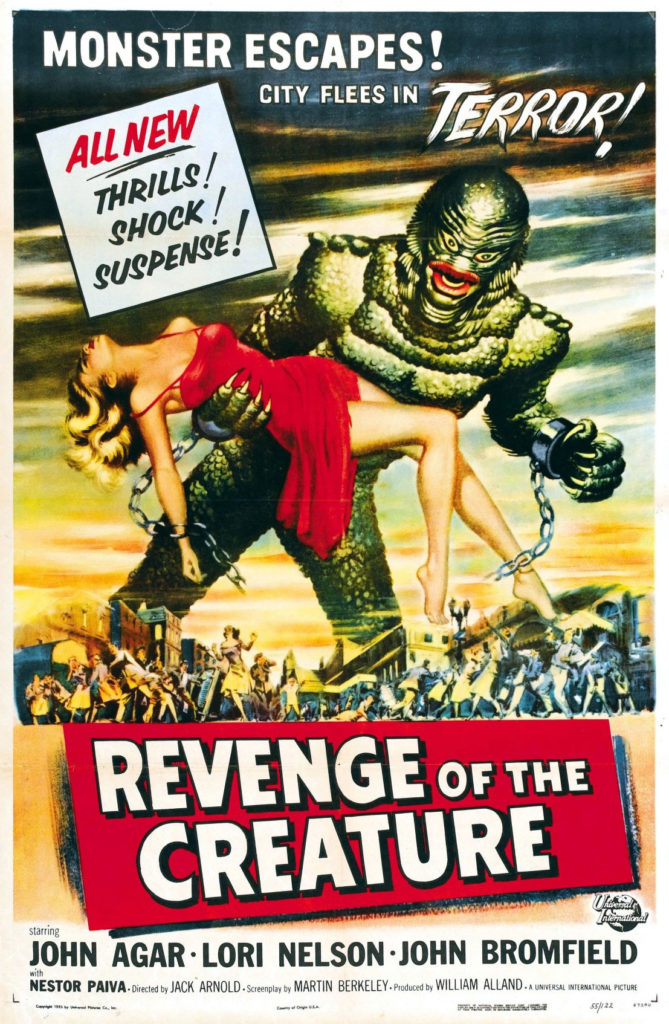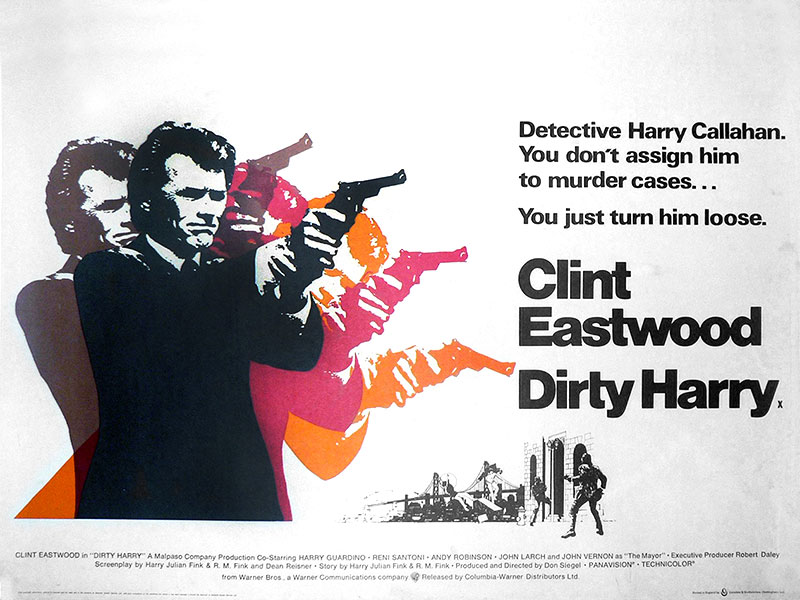 The folks at Universal Pictures must have been surprised when their 1954 schlock monster flick, Creature from the Black Lagoon, turned out to not only be good, but also a moneymaker. Turnaround was quicker back then, so just a year later producer William Alland and director Jack Arnold were able to premiere a sequel.
The folks at Universal Pictures must have been surprised when their 1954 schlock monster flick, Creature from the Black Lagoon, turned out to not only be good, but also a moneymaker. Turnaround was quicker back then, so just a year later producer William Alland and director Jack Arnold were able to premiere a sequel.
From a screenplay by Martin Berkeley, Revenge of the Creature follows another scientific expedition to the black lagoon. Nestor Paiva returns as Captain Lucas, the skipper of the boat the team takes. This sequence is brief. The creature is captured quickly and taken to the Ocean Harbor Oceanarium in Florida, to live out the rest of its days as the star attraction.
Meanwhile, Professor Clete Ferguson (John Agar), learns of the creature’s capture and makes his way to the oceanarium to study it. There, he takes on an ichthyology student, Helen Dobson (Lori Nelson), as his assistant. The two also provide the film’s requisite romance.
Ferguson wants to find out if the creature is intelligent. The experiments require diving into the tank where the creature is held. It’s risky work, but that’s good for the viewer. Because, beyond what I’ve already described, there is no other plot. The creature is caught and being studied, and both filmmakers and audience are waiting around for something to happen. Continue reading “Revenge of the Creature”

 The tough-nosed cop with a disdain for the rules is a staple in film. Always butting heads with desk-bound lieutenants and mayors more concerned with getting reelected than cleaning up the streets, this breed of law enforcement officer has little time for procedure or the niceties of due process. Largely a fabrication of Hollywood, this cop operates in a world where the worse the crime, the more likely the guilty will go free due to the dreaded plot device known as “technicalities.” It’s all the more galling because there is never any doubt to the audience or to the hero that the bad guy is bad. Letting the bad guy go free because his rights were violated is nothing less than a miscarriage of justice, and it’s always left up to the hero cop to right such grievous wrongs. No film comes to mind that explored these ideas more effectively than 1971’s Dirty Harry.
The tough-nosed cop with a disdain for the rules is a staple in film. Always butting heads with desk-bound lieutenants and mayors more concerned with getting reelected than cleaning up the streets, this breed of law enforcement officer has little time for procedure or the niceties of due process. Largely a fabrication of Hollywood, this cop operates in a world where the worse the crime, the more likely the guilty will go free due to the dreaded plot device known as “technicalities.” It’s all the more galling because there is never any doubt to the audience or to the hero that the bad guy is bad. Letting the bad guy go free because his rights were violated is nothing less than a miscarriage of justice, and it’s always left up to the hero cop to right such grievous wrongs. No film comes to mind that explored these ideas more effectively than 1971’s Dirty Harry.